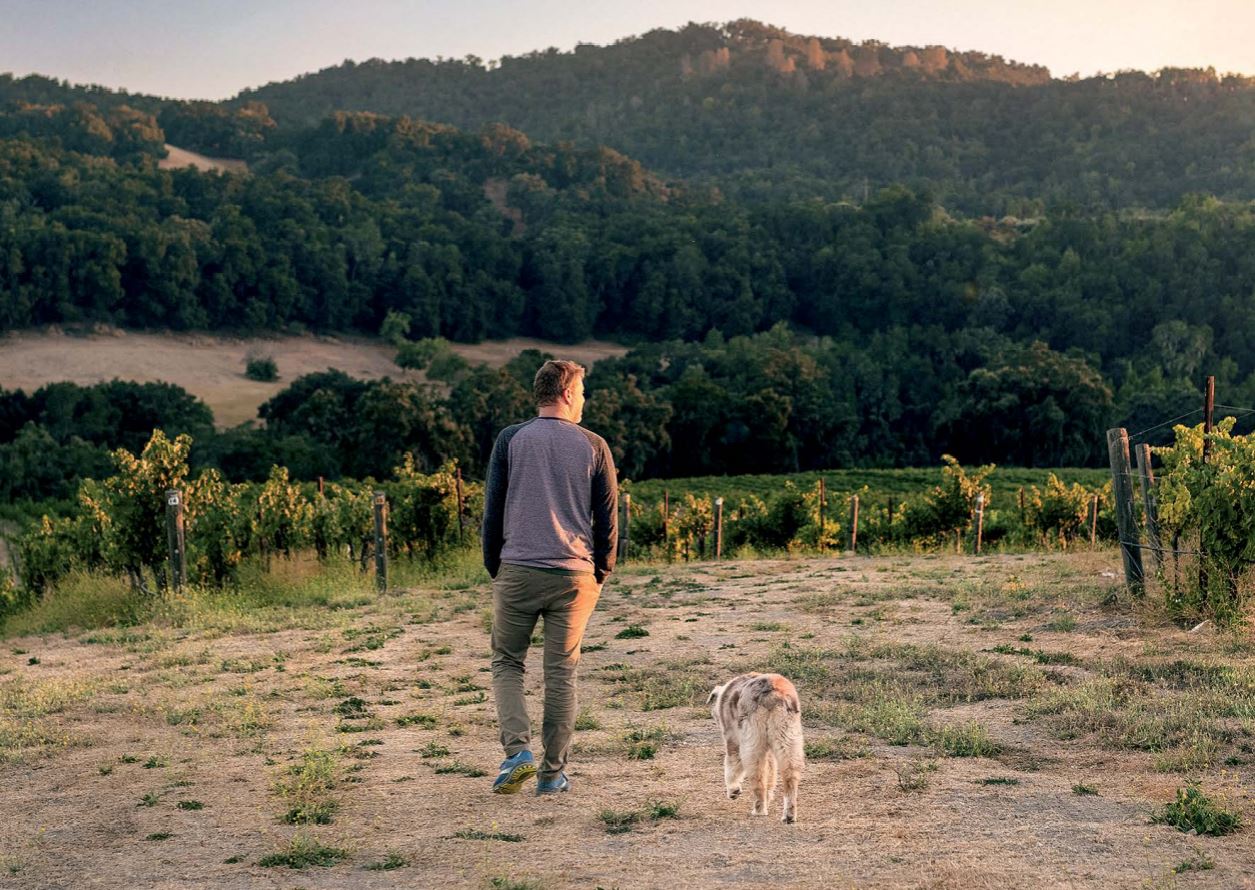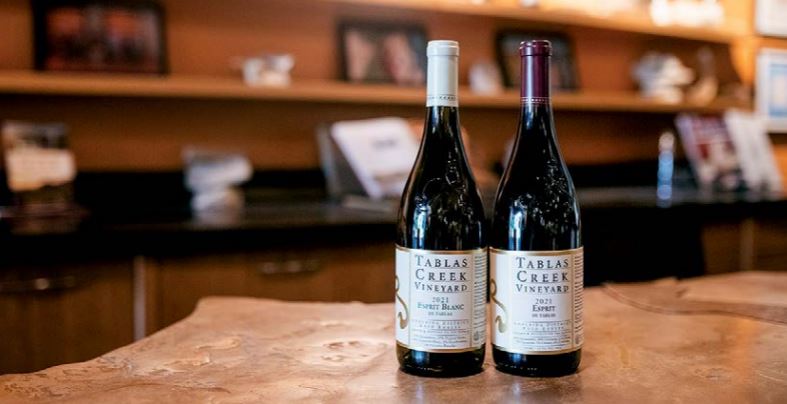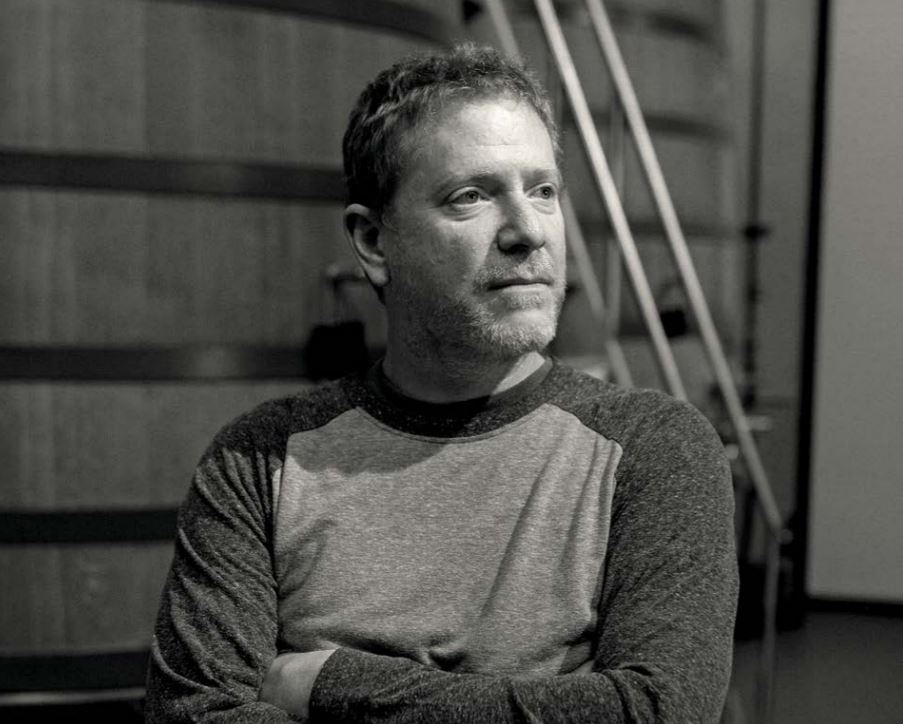Need Help
If you need help setting up services or accessing your accounts, please call our Customer Care Team at 866.552.9172 during business hours (7 a.m. — 5 p.m. PST, M-F) or email us at CustomerCare@AgWestFC.com.
Location
If you need help setting up services or accessing your accounts, please call our Customer Care Team at 866.552.9172 during business hours (7 a.m. — 5 p.m. PST, M-F) or email us at CustomerCare@AgWestFC.com.
Location
If you need help setting up services or accessing your accounts, please call our Customer Care Team at 866.552.9172 during business hours (7 a.m. — 5 p.m. PST, M-F) or email us at CustomerCare@AgWestFC.com.
Securely update and exchange balance sheet information with your AgWest team.
Put your idle cash to work with a suite of banking services that sweeps funds between accounts. Fees apply.
The late sun sets over the coastal mountain range, illuminating the hills in bright yellows and oranges. It’s mid-September, just days away from the start of wine grape harvest. Jason stops at several grapevines, checking the fruits of each of the varietals. In the distance, green trees frame the Tablas Creek watershed along the property.
In this spectacular place with its Mediterranean climate, Jason continues the legacy his father, Robert Haas, and his business partner, Jacques Perrin, began when they launched the winery project known today as Tablas Creek Vineyard in 1989. And for the past 22 years, he has worked to share the unique story of the land and the vines to help bridge a connection to the wine.

Jason walks around the fields with his dog
Storytelling – and sharing our own unique perspective in the world – is imperative today. Stories help connect us, organize our lives, create meaning and build trust through shared experiences. In business, powerful stories can evoke emotion and bring products and desired experiences to life. In the early 2000s, Jason connected and entrusted others with the story of Tablas Creek to transform the operation into what it is today.
Robert Haas started his career in 1950 as a wine importer, traveling through France and developing relationships with many of the wine producers in the region. Through this work, he met the Perrin family of Château de Beaucastel and became friends with the Perrin family patriarch, Jacques Perrin. Together, with Jacques' sons, Jean-Pierre and Francois, they partnered in a vision to bring Rhone grape varietals, such as Syrah, Grenache and Viognier, to California, knowing they could find a similar climate to southern France there.
In the mid-1980s, their shared vision gained traction, and Robert, Jean-Pierre and Francois began looking for land that would suit Rhone varietals. They found the perfect property in Paso Robles after four years of searching and purchased the 120 acres at Tablas Creek with assistance from Farm Credit.
The process of bringing the Rhone varietals to the United States was lengthy. Each new varietal had to undergo a three-year quarantine process mandated by the United States Department of Agriculture to ensure the vines were virus-free. Once approved, the vines were multiplied in a nursery constructed at Tablas Creek and then planted beginning in 1992. The new varietals were then made available to other producers to plant and grow.
And grow they did. By the early 2000s, it became clear that Tablas Creek was growing from more than a project to a business that needed a full-time manager. They also needed to make the business sustainable: Tablas Creek was selling just 4,000 of the 12,000 cases of wine produced. That’s when Jason quit his job working in technology on the East Coast to help Robert with the operation.
Jason spent the next year meeting with distributors on the East Coast, learning what story was being told about Tablas Creek. “Wine buyers would say, ‘It's a cool project. I like the idea but let me show you the ten bottles we still have of the case I bought last year.’ What I realized is that we were making blends that didn’t have a category in the marketplace yet, out of grapes that people didn’t know and couldn’t pronounce, from a part of California that they hadn’t heard of, with French names that didn’t mean anything to them. So that was four strikes against us.”

Tablas Creek wine
Jason, along with Robert and the Tablas Creek team, first opened a tasting room in the summer of 2002 to allow people to learn about and experience the wines. Later that summer, they launched the Tablas Creek Wine Club and sent their first shipment in August. This helped them identify people who were fans of the wine and build a connected clientele.
“We basically tried to throw anything we could think of at the wall and see what would stick,” says Jason.
Jason also spent his days riding with distributors to share the wine with potential buyers. Even if they didn’t make any sales that day, there was immense benefit to having the sales representative hear the history and vision of Tablas Creek over and over again.
They also started participating in festivals, pouring the wine at tasting booths and telling the story of Tablas Creek. They invited writers from industry associations to bring that story to new audiences in their respective publications.
“We reached out to organizations in a position to help us do what we wanted to do,” says Jason. He joined the board of directors of industry organizations to connect with Paso Robles and the wine community.
“The last piece was thinking about how we told our story to people we couldn’t be in front of. That included taking a deeper look at what we did with our website and print newsletters.” In 2007, Tablas Creek started a blog, which grew in popularity, followed by a robust social media presence to spread the word to more potential customers.
Today, Tablas Creek makes and sells 30,000 cases per year, a long way from the 4,000 cases twenty years ago.
“In all these ways, it’s connected to how we get people inside our world and excited about the things we are excited about – finding ways for them to feel connected.”
Early on, Jason realized he needed to understand Tablas Creek’s value proposition and what makes their wines and the winery different.
To Jason, along with their history of bringing grapevines in from France, propagating them, and making them available to the broader community, it’s also about Tablas Creek operating as an organic winery and being the world’s first Regenerative Organic Certified vineyard.
On the homepage of Tablas Creek’s website, visitors will find a photo of a herd of sheep grazing between each row of vines, a key component of promoting a healthy soil and ecosystem as a part of the regenerative organic farming model.
“We do a lot of work writing on our blog and working with writers to tell the story of regenerative farming and why it matters. That's going to be one of the biggest measures of how successful we are over the next couple of decades and the extent to which we can translate that into something that people feel they can do.” Last, but not least, Jason says the people are the heart of the story of Tablas Creek Winery.

Photo of Jason Haas
“Our vineyard manager was part of the first crew that planted the first vines here in 1992 and is still here 31 years later. The fact that we can be a place where people are inspired to come and stay is something that I'm really proud of. The accumulated knowledge and accumulated expertise are irreplaceable.”
It’s clear that the unique story, and shared vision that began in 1989, continues to resonate and connect people to Tablas Creek today.
“We’ve been able to create an environment within Tablas Creek where incredibly talented and motivated people are excited to come and be a part of things for decades. For me, it’s the single best validation of that original idea my dad and the Perrins had.”